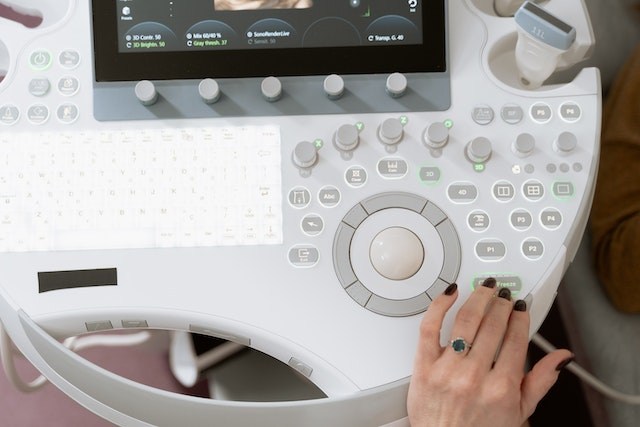AI in Psoriasis Diagnosis is revolutionizing the way doctors detect and treat this chronic skin condition. By harnessing the power of artificial intelligence, medical professionals can now accurately diagnose psoriasis and recommend tailored treatment plans with greater precision. This innovative technology can analyze vast amounts of patient data, including symptoms, medical history, and genetic information, to generate personalized insights and predictions.
Not only does AI enable faster and more accurate diagnoses, but it also enhances the overall patient experience by reducing wait times and allowing for remote consultations. With AI in Psoriasis Diagnosis, healthcare providers can provide targeted and effective care, improving outcomes and quality of life for individuals living with psoriasis.
Understanding Psoriasis: A Brief Overview
Psoriasis is a chronic skin condition that affects millions of people worldwide. It is characterized by red, scaly patches on the skin, often accompanied by itching and pain. While the exact cause of psoriasis is still unknown, it is believed to be related to an overactive immune system.
Psoriasis can occur on any part of the body, but it most commonly affects the elbows, knees, and scalp. It can also affect the nails, causing them to become thick, pitted, and discolored. The severity of psoriasis can vary from person to person, with some experiencing only mild symptoms while others have more severe outbreaks.

Artificial intelligence (AI) has emerged as a game-changer in the field of dermatology, particularly in the diagnosis of psoriasis. By analyzing vast amounts of data, AI algorithms can accurately identify and classify psoriasis lesions, helping dermatologists make more informed decisions about treatment options.
AI-powered tools can also assist in monitoring the progression of psoriasis and evaluating the effectiveness of different treatment approaches. This not only saves time and resources but also improves patient outcomes by providing personalized and targeted care.
Furthermore, AI has the potential to enhance patient education and support. By providing reliable and accessible information about psoriasis, AI-powered platforms can empower patients to take an active role in their own healthcare journey.
Understanding psoriasis and the role of AI in its diagnosis and management is crucial for both healthcare professionals and patients. With ongoing advancements in technology, AI continues to revolutionize dermatology and improve the lives of those living with psoriasis.
→ The Impact of AI on Transforming Mental Health Diagnosis and Therapy
The Role of Artificial Intelligence in Psoriasis Diagnosis
Psoriasis is a chronic skin condition that affects millions of people worldwide. Traditionally, diagnosing psoriasis has been a complex and time-consuming process, requiring dermatologists to examine skin lesions and make subjective judgments based on their experience. The advent of artificial intelligence (AI) has revolutionized the field of dermatology and has become a game-changer in the diagnosis of psoriasis.
AI algorithms can analyze vast amounts of data and images to identify patterns and characteristics specific to psoriasis. This enables dermatologists to make more accurate and timely diagnoses, leading to effective treatment plans for patients. By leveraging machine learning and deep learning techniques, AI can continuously improve its diagnostic capabilities, learning from new cases and refining its algorithms.
The use of AI in psoriasis diagnosis has several benefits. Firstly, it reduces the burden on dermatologists, allowing them to focus on more complex cases and providing better care to their patients. Secondly, it improves diagnostic accuracy, minimizing misdiagnosis and ensuring that patients receive appropriate treatment from the start. Lastly, it enhances the speed of diagnosis, enabling patients to receive timely care and management.

The role of artificial intelligence in psoriasis diagnosis is transformative. It empowers dermatologists with advanced tools to make accurate diagnoses and deliver personalized care to patients. With the continuous advancements in AI technology, we can expect further improvements in the field of dermatology, revolutionizing the way psoriasis and other skin conditions are diagnosed and treated.
💡 Artificial Intelligence has revolutionized the way psoriasis is diagnosed in dermatology. With its game-changing capabilities, AI offers accurate and efficient diagnosis, aiding dermatologists in providing effective treatments for patients. Embrace this technological revolution and witness the transformative impact it has on psoriasis diagnosis.
→ Utilizing AI to Transform Early Autism Detection: Enhancing Diagnosis and Intervention
Benefits of AI in Psoriasis Diagnosis
Psoriasis is a chronic skin condition that affects millions of people worldwide. Traditionally, diagnosing psoriasis has been a time-consuming and challenging process for dermatologists. With the advent of artificial intelligence (AI), there have been significant advancements in the field of psoriasis diagnosis.
AI algorithms have the ability to analyze large amounts of data, including medical records, images, and patient symptoms. By integrating AI technology into the diagnostic process, dermatologists can now make more accurate and efficient diagnoses. AI algorithms can quickly identify patterns and detect subtle changes in the skin, leading to early detection and timely treatment.

One of the major benefits of AI in psoriasis diagnosis is its ability to improve patient outcomes. By providing dermatologists with accurate and timely information, AI can help tailor treatment plans to each individual patient. This personalized approach can lead to better treatment outcomes and improved quality of life for patients.
Another benefit of AI in psoriasis diagnosis is its potential to reduce healthcare costs. By streamlining the diagnostic process and minimizing unnecessary tests and procedures, AI can help save both time and money. AI algorithms can assist dermatologists in making more confident and accurate diagnoses, reducing the need for repeat visits and further medical interventions.
The integration of AI technology in psoriasis diagnosis has revolutionized the field of dermatology. The benefits of AI in psoriasis diagnosis include improved accuracy, personalized treatment plans, and cost savings. With continued advancements in AI, we can expect even greater improvements in the diagnosis and management of psoriasis.
→ Innovative AI in Healthcare: Transforming Medical Diagnosis
Challenges and Limitations of AI in Psoriasis Diagnosis
Psoriasis, a chronic skin condition characterized by red, itchy, and scaly patches, affects millions of people worldwide. The integration of AI in diagnosing psoriasis has shown promising results, revolutionizing the field of dermatology. Like any emerging technology, AI also has its own set of challenges and limitations.
One major challenge is the lack of diverse and representative data. AI models heavily rely on accurate and extensive datasets to make accurate predictions. In the case of psoriasis, the availability of diverse patient data, including different skin types, ethnicities, and variations in the severity of the condition, is crucial. Without comprehensive data, AI algorithms may struggle to provide accurate diagnosis and treatment recommendations.
Another limitation is the interpretability of AI algorithms. While AI can analyze vast amounts of data and identify patterns, the decision-making process is often black-boxed, making it difficult for dermatologists to understand how the diagnosis was reached. This lack of transparency raises concerns about the reliability and accountability of AI systems in the context of patient care.
The ethical considerations surrounding privacy and data protection present another challenge. With the collection and analysis of sensitive patient information, ensuring the security and confidentiality of data becomes paramount. Striking the right balance between utilizing patient data for innovation and safeguarding patient privacy is crucial in the widespread adoption of AI in psoriasis diagnosis.
Despite these challenges and limitations, AI holds immense potential in revolutionizing psoriasis diagnosis. Addressing these issues and further refining AI algorithms will help create a more robust and reliable system that can greatly benefit dermatologists and patients alike. As technology continues to advance, the integration of AI in the field of dermatology is an exciting development with the potential to improve patient outcomes and enhance the accuracy of psoriasis diagnosis.
How to Implement AI in Dermatology Practice
Psoriasis, a chronic skin condition affecting millions worldwide, has long posed challenges for dermatologists in accurately diagnosing and effectively treating patients. With the advent of artificial intelligence (AI), there is new hope for improved diagnosis and personalized treatment plans.
Implementing AI in dermatology practice begins with the integration of advanced imaging technologies. AI algorithms can analyze medical images, such as skin biopsies and photographs, with remarkable accuracy and speed. By comparing these images to vast databases of known psoriasis cases, AI can assist dermatologists in making more precise diagnoses.
Furthermore, AI-powered tools can track the progression of psoriasis over time. By analyzing data from patient records, including symptom severity, response to treatments, and lifestyle factors, AI algorithms can identify patterns and predict disease outcomes. This invaluable information allows dermatologists to tailor treatment plans to individual patients, optimizing results and improving quality of life.
Beyond diagnosis and treatment, AI can also enhance patient education and support. AI chatbots can provide round-the-clock access to information, answering common questions and offering guidance for self-management. This empowers patients to take an active role in their care, leading to better outcomes and increased satisfaction.
The implementation of AI in dermatology practice has the potential to revolutionize psoriasis diagnosis and treatment. By leveraging AI algorithms and advanced imaging technologies, dermatologists can achieve more accurate diagnoses, personalized treatment plans, and improved patient education. With AI as a powerful tool, the future of dermatology looks brighter than ever.
Ethical Considerations in AI-Powered Psoriasis Diagnosis
With the advent of artificial intelligence (AI) technology, the field of dermatology has witnessed a significant revolution in the diagnosis and management of psoriasis. AI-powered systems have the potential to accurately detect and classify psoriasis lesions, enabling faster and more efficient diagnosis. It is critical to address the ethical considerations associated with AI-powered psoriasis diagnosis.
Privacy and data security are major concerns when it comes to AI in healthcare. Patient data must be handled with utmost care to ensure confidentiality and compliance with privacy regulations. The transparency of AI algorithms used for diagnosis is essential. Healthcare professionals and patients should have a clear understanding of how these algorithms work to avoid bias or unfairness in the diagnosis process.
Another ethical consideration is the potential impact on the doctor-patient relationship. While AI can assist in diagnosis, it is crucial to maintain the human touch in healthcare. Physicians should continue playing a central role in discussing the diagnosis with patients, providing emotional support, and addressing any concerns or questions.
Furthermore, the ethical use of AI in psoriasis diagnosis requires continuous monitoring and evaluation. Regular assessments of AI systems' performance and accuracy are necessary to ensure their effectiveness and reliability. This also includes ongoing training and updating of algorithms to keep up with the evolving nature of psoriasis.
While AI-powered psoriasis diagnosis offers numerous benefits, it is essential to navigate the ethical considerations associated with its implementation. Privacy, transparency, maintaining the doctor-patient relationship, and ongoing evaluation are key aspects that must be carefully addressed to ensure the ethical use of AI technology in dermatology.
Future Prospects: Advancements in AI for Psoriasis Treatment
Psoriasis is a chronic skin condition that affects millions of people worldwide. It is characterized by red, itchy patches on the skin, and can have a significant impact on quality of life. With recent advancements in artificial intelligence (AI), there is hope for improved diagnosis and treatment of psoriasis.
AI has revolutionized dermatology by providing faster and more accurate diagnosis of skin conditions, including psoriasis. Machine learning algorithms can analyze thousands of images and medical records to identify patterns and markers of psoriasis. This not only reduces the time taken for diagnosis but also enhances accuracy, leading to more effective treatment plans.
In addition to diagnosis, AI has the potential to transform psoriasis treatment. By analyzing large volumes of data, AI algorithms can identify personalized treatment options for patients based on their specific symptoms and medical history. This individualized approach can improve treatment outcomes and reduce side effects.
Furthermore, AI can help monitor the progress of psoriasis treatment. By analyzing images and patient-reported data, AI algorithms can track changes in the condition and provide real-time feedback to healthcare providers. This enables timely adjustments to treatment plans and ensures optimal results.
AI is a game-changer for dermatology, offering new possibilities for the diagnosis and treatment of psoriasis. With continued advancements in technology, the future looks promising for individuals living with psoriasis. By harnessing the power of AI, we can improve the lives of those affected by this chronic skin condition.
Key Takeaways
Key Takeaways: AI Revolutionizes Psoriasis Diagnosis
Psoriasis, a chronic skin condition affecting millions worldwide, is now witnessing a groundbreaking change in its diagnosis process with the advent of Artificial Intelligence (AI). Here are the key takeaways from how AI is revolutionizing psoriasis diagnosis:
Improved Accuracy and Speed
AI algorithms analyze vast amounts of patient data to identify patterns and markers that human dermatologists may miss. This leads to more accurate and timely diagnoses, enabling faster treatment and better patient outcomes.
Enhanced Efficiency in Dermatology Practices
By automating the analysis of images and patient records, AI reduces the burden on dermatologists, allowing them to focus on more complex cases. This streamlines workflow, increases efficiency, and improves overall patient care.
Personalized Treatment Plans
With AI-powered diagnosis, dermatologists can develop personalized treatment plans based on individual patient characteristics and response to previous therapies. This tailored approach enhances treatment efficacy and patient satisfaction.
Early Identification of Psoriasis
AI algorithms can detect subtle signs of psoriasis before its onset. This early identification enables proactive intervention and preventive measures, potentially reducing the severity of the condition and improving long-term outcomes.
Continuous Learning and Improvement
AI systems continually learn from new data, refining their diagnostic accuracy over time. This adaptive learning process ensures that the algorithms stay up-to-date with the latest research and clinical advancements.
AI has brought about a paradigm shift in psoriasis diagnosis, offering improved accuracy, efficiency, and personalized care. As this technology evolves, it holds immense promise in transforming dermatology practices and improving the lives of psoriasis patients worldwide.
In a nutshell
In conclusion, AI has emerged as a game-changer in the field of psoriasis diagnosis. Its ability to analyze vast amounts of data and detect patterns that human eyes may miss has revolutionized dermatology. With improved accuracy, faster diagnosis times, and enhanced treatment recommendations, AI has the potential to greatly improve patient outcomes. However, it is important to address the challenges and ethical considerations associated with AI implementation.
As technology continues to advance, we can expect further advancements in AI-powered psoriasis diagnosis and treatment. The future of dermatology looks promising, thanks to the power of artificial intelligence.
Key Takeaways
- AI is revolutionizing psoriasis diagnosis, offering improved accuracy and faster diagnosis times.
- Implementing AI in dermatology practice requires careful consideration of ethical implications.
- The future of psoriasis treatment looks promising with advancements in AI technology.
Frequently Asked Questions
How does AI aid in psoriasis diagnosis?
AI utilizes advanced algorithms to analyze images and patient data, aiding dermatologists in accurate diagnosis.
What are the benefits of AI in psoriasis diagnosis?
AI offers improved accuracy, faster diagnosis times, and personalized treatment recommendations.
Are there any limitations to AI in psoriasis diagnosis?
Challenges include the need for large datasets, potential biases, and ethical considerations.
How can AI be implemented in dermatology practice?
Implementing AI requires integrating AI algorithms into existing systems and training healthcare professionals on its use.
